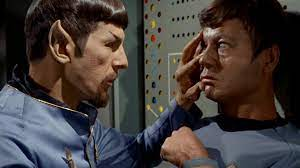LISTEN. In Environmental Ethics today, I need to re-assert my general admiration for Wendell Berry after last class when we went outside and I raised my voice to be heard over those obnoxious Peck Hall blowers. I didn't want to shout my challenge to what I see as his reductively binary approach to Two Minds, I just wanted to put it out there for our consideration. I just think we need all kinds of minds, and need all kinds of minds to make room for the consideration of other kinds.
So let me quickly agree with Wendell (in his 2004 essay "Quantity versus Form") that "the ideal of a whole or complete life" is not replaceable by the "ideal merely of a long life." Quality matters. "Ripeness is all."
A complete life, a good life (though by no means the only kind of good life), is one in which we perceive our calling, do our work with satisfaction, marry well, raise a family, make effective common cause with neighbors and friends, live long and healthily enough to see our children and/or others' children capably succeed us, "continue in old age to be useful; and finally die a good or holy death surrounded by loved ones."
But what we have instead, in too many instances, is something far short of the ideal. "Death now apparently is understood, and especially by those who have placed themselves in charge of it, as a punishment for growing old, to be delayed at any cost." There is, as the better bioethicists tell us, such as thing as "an overly extended life." More is not always better.
In "Word and Flesh" (1989) Wendell says
We must achieve the character and acquire the skills to live much poorer than we do. We must waste less. We must do more for ourselves and each other. It is either that or continue merely to think and talk about changes that we are inviting catastrophe to make.
And [anticipating Kurt Andersen's Fantasyland],
Our most serious problem, perhaps, is that we have become a nation of fantasists. We believe, apparently, in the infinite availability of finite resources... We have an economy that depends not on the quality and quantity of necessary goods and services but on the moods of a few stockbrokers. We believe that democratic freedom can be preserved by people ignorant of the history of democracy and indiffierent to the responsibilities of freedom.
And then, though I own several computers and find the experience of writing with them congenial, I do also find myself in broad sympathy with the spirit of "Why I Am Not Going to Buy a Computer" (1987) and "Feminism, the Body, and the Machine" (1989). In particular, I agree with the latter essay's statement that
if there is to be a future, the good of it is already implicit in the good things of the present. We do not need to plan or devise a 'world of the future'; if we take care of the world of the present, the future will have received full justice from us... we have the same pressing need that we have always had--to love, care for, and teach our children.
That's the view I've long admired, that "we can do nothing for the human future that we will not do for the human present"... [They] who work and behave well today have "discharged today's only obligation to the morrow." I wouldn't go so far as Wendell as to say they, we, need "take no thought" for it. But I agree, with Berry and Dewey and every other philosopher of presence, attention, and hope, that our first and final obligation is always to engage with and immerse in our own time, to the best effect we can manage. "My wish is simply to live my life as fully as I can."
And then Wendell wins my allegiance again when he says that writing is "of the body," and the best writing resists etherealizing itself. "I do say that in using computers writers are flirting with a radical separation of mind and body, the elimination of the work of the body from the work of the mind."
So I'm a flirt. But I get the point, that much speculative thought unmoors itself from solid earth. I say that all the time in class, when we turn to Pyrrhonic or Cartesian skepticism. How do I know I have a body, or am one? How do I not know it?! Take a firm step, draw in a sharp breath, lift a heavy object. You'll know.
And so of course I love it when Wendell says (good) writing, like good philosophizing, is
preeminently a walker's art. It can be done of foot and at large. The beauty of its traditional equipment is simplicity. And cheapness. Going off to the woods, I take pencil and some paper (any paper--a small notebook, an old envelope, a piece of feedsack), and I am as well equipped for my work as the president of IBM... My mind is free to go with my feet.
And like spoken language generally, it's free to go with my mouth and eyes and ears and lungs.
Reading aloud what we have written--as we must do, if we are writing carefully--our language passes in at the eyes, out at the mouth, in at the ears; the words are immersed and steeped in the senses of the body before they make sense in the mind. They cannot make sense in the mind until they have made sense in the body.
"Language is the most intimately physical of all the artistic means." And philosophical means. Too many philosophers don't understand that.
And yet I must demur when Wendell insists that "a computer cannot help you to write better." He may be right about that, but this may also be an exception to the generally reliable observation that more is, more often than not, not better. My own process and routine are better, I believe, by virtue of the computer which allows me to be more fluent and less restricted by the cramp in my hand that my wife the back doc assures me is not arthritis or carpal tunnel or anything that can’t be fixed by a steadier commitment on my part to getting in line (so to speak). Aligned.
But I do appreciate Wendell's insistence that if something's not broken it needn't be replaced. If you can write well with a pencil, and no less painfully with a machine, stick to the older technology.
Or at least think about it. That’s why I call Wendell a Bluegrass Socrates, just as Peter Singer is an Aussie Socrates. They make you stop and think.
And so do Machiavelli and Hobbes, the philosophers du jour in CoPhi. My favorite commentary on both of them features another Hobbes behaving like a Prince. We'll talk about what Machiavelli's virtu' does not have in common with virtue, whether the original Hobbes was really so beastly, and I'll recommend some good podcasts and videos addressing those and other questions.
And while we may not know much about time, we should know it's about time to select midterm report topics. Who wants to go first?










